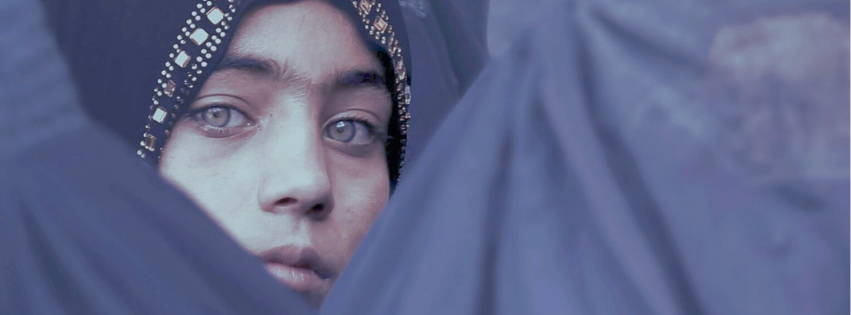There was a recent headline which told the world, a meeting to be held by the UN with the Taliban did not intend to include any women from Afghanistan.
The original article held hope some women would be invited, to be able to talk about their rights, and to allow women’s voices to be heard, rather than go on contributing to the Taliban view of the world that they have the right to oppress with impunity. The following days proved this would not be the case.
In response to the outpouring of criticism, the UN Undersecretary-General, Rosemary DiCarlo said Afghan women’s rights, will be raised in every meeting with the Taliban: ignoring the fact, these rights are raised in every meeting, but to no avail. The group continues to impose more bans and restrictions with impunity and nothing changes.
Adam Kahane in ‘Power and Love’ described a letter he received from a leader and director of an influential research and advocacy organisation about what was being done to bring people together in Guatemala to break down decades of oppression, killing, poverty, exclusion and discrimination for the Guatemalan people.
‘I see a certain naivete in your vision of a balance between power and love, in which things can be improved leaving everyone satisfied. How can that be? In a context of great imbalance or inequity, as in Guatemala, how can poverty be uprooted without some sectors of society (of power of course) being very dissatisfied. It is their economic interests which will be affected. I think that balance and satisfaction for all are possible in the realm of discourse, but not when you go down to ‘real’ politics in a context of enormous inequality.’ (Kahane 2010:45-46)
She goes onto remind Adam Kahane that at an intellectual level, people sign up for the conversations, sharing ideas and a vision, but when it comes to practice, not an inch is conceded in their belief system or privileges, from which stem their hierarchy, power and control over the ‘other’. Ambivalence, lack of clarity or a fear of being too radical, always favours the status quo, which means no change.
We have many writers who remind us, along with Kahane’s letter writer: ‘those who hold power and exert repression should know, in the end, that road leads to their own killing.’ We can look to Paulo Frere, Vaclav Havel, Nelson Mandela, Martin Luther King among an endless litany of those who have experienced discrimination and exclusion and repression and have seen the bitter fruits they bear. The only way forward is to break the cycle of scapegoating, privileging and terror, by bringing in those who are excluded. Just as Jesus did.
Choosing not to include those who are seeking to change the demons of inequality, exclusion, abuse, oppression, tyranny and power, means no change will occur. Such change will always require all parties to be involved and everyone to cede changes for which everyone can become invested and it must be worked through together with a shared vision. Otherwise, we will go on repeating what we’ve always done, with violence, and will get what we’ve always got, with violence, momentary peace that never lasts.
Not to include the Afghan women was a significant misstep.
In our world today, we apply the same rubric to many other groups, situations and relationships. Not to include our LGBTQI+ sisters and brothers, not to include women, not to include the First Nations peoples, not to include other races and faiths in the decisions where they have always been excluded will not result in the shift in power and privilege and entitlements and oppression to the extent which is required by our faith and our hope.
Small adjustments may be made, but they will always slip back into ambivalence and the’ tin can will be kicked down the road’ again for someone else to have another go in due course when the people have also moved on.
Justice and righteousness are called for by God. We are sent to be peace-makers without scapegoating like Christ. We are called to be a new way, God’s way to justice and to welcome all into God’s kingdom. Its time we paid attention!
Bibliography and References:
Freire P. 1993. Pedagogy of the Oppressed. England, Penguin Books.
Havel, V. 1978. The Power of the Powerless. London, Penguin Random House UK
Havel, V. 1991. Disturbing the Peace. London, Vintage.
Kahane, A. 2010. Power and Love. A Theory and Practice of Social Change. Berrett-Koehler Publishers, Inc. San Fransisco, USA.
King, N.K. 1991. A Testament of Hope. The Essential Writings and Speeches of Martin Luther King Jr. New York, Harper San Francisco.
Roy, A., 2002. the algebra of infinite justice. London, HarperCollinsPublishers.
Roy, A. 2004. The chequebook & the cruise missile. London, Harper Perennial
Volf, M. 2006, 2011. The End of Memory. Remembering Rightly in a Violent World. Grand Rapids, Michigan, William B. Eerdmanns Publishing Company
Williams, R. 2005. The Truce of God. UK and USA. Wm.B. Eerdmans Publishing Co.
Woods, M.J. 2022. Practising Peace. Theology, Contemplation, and Action. Oregon, USA. Wipf & Stock.
Picture by Isaak Alexandre Karslian, via Unsplash.
